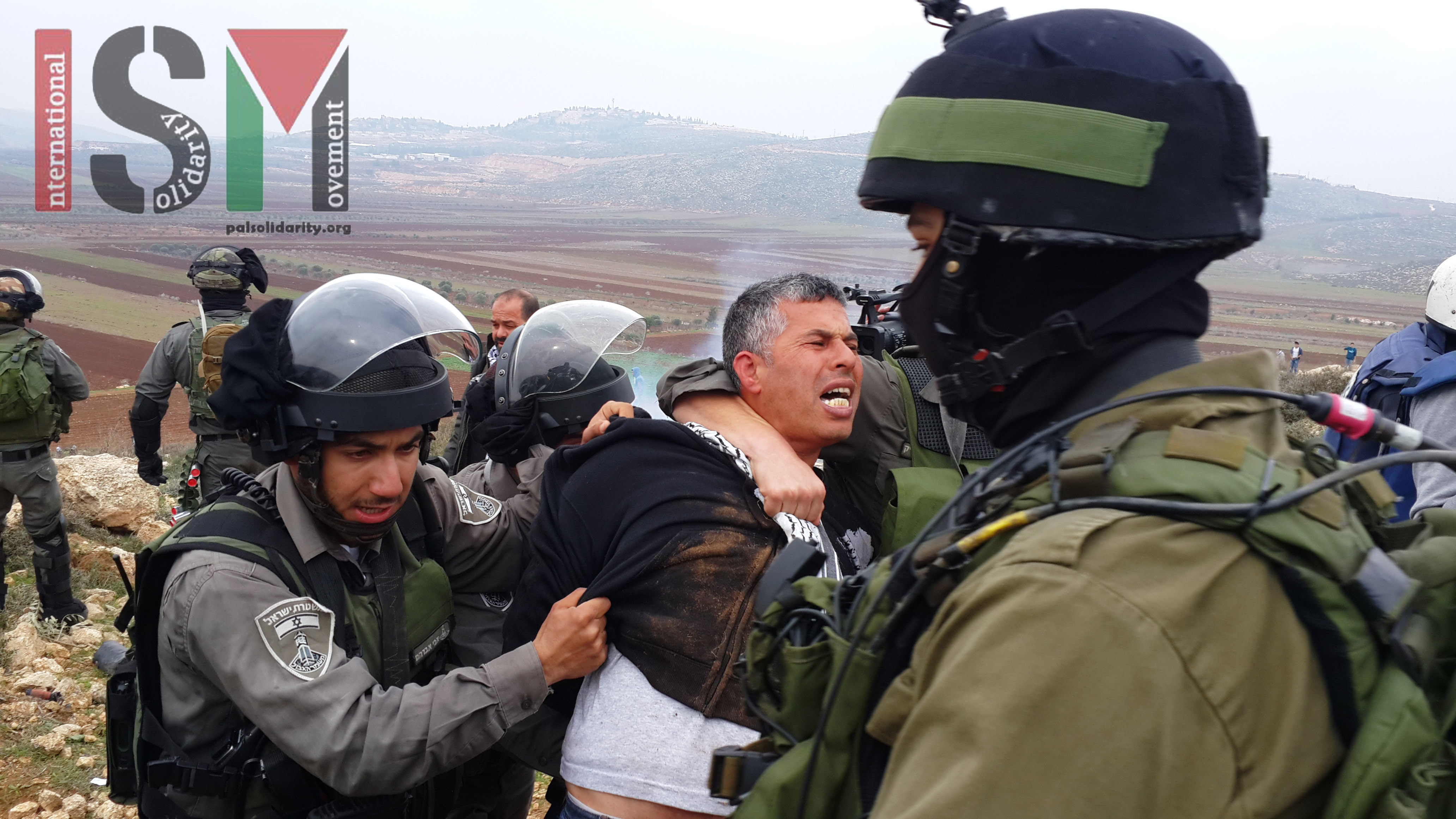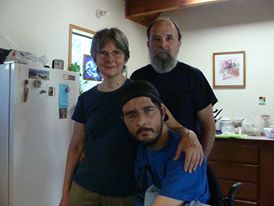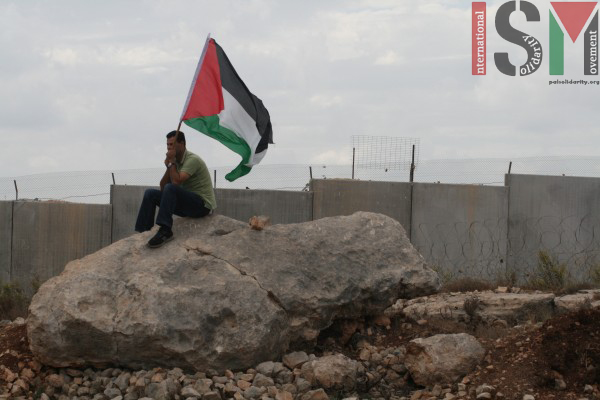Category: Press Releases
-
UPDATED: Palestinians continue the struggle against the Adei Ad outpost
20th December 2014 | International Solidarity Movement | Turmusaya, Occupied Palestine Update 22 December: Palestinian activists Mohammed Khatib and Jaffar Hamayel, both arrested on December 19 while peacefully demonstrating in Turmusaya, were released today, December 22, on bail of 7500 shekel each. ***** Hundreds of Palestinian children, women, and men gathered at Turmusaya on Friday December…
-
Trial of American activist maimed by Israeli military to begin
5th December 2014 | International Solidarity Movement| Occupied Palestine Tristan Anderson’s civil trial against the Israeli Military will begin on Sunday 7 December at 10:00, Jerusalem District Court. Tristan Anderson was critically injured after being shot in the head with a high velocity tear gas grenade by Israeli Border Police following a protest against the construction…
-
Human Rights Defender Abdallah Abu Rahma receives guilty verdict from military court
21st October 2014 | International Solidarity Movement | Bil’in, Occupied Palestine On October 21st, Human Rights Defender Abdallah Abu Rahma was found guilty by an Israeli military court of “disturbing a soldier”. “Demonstrating against the occupation cannot be a criminal offence. Finding Abdallah guilty only shows that the [Israeli] military force is a tool to perpetuate the…



